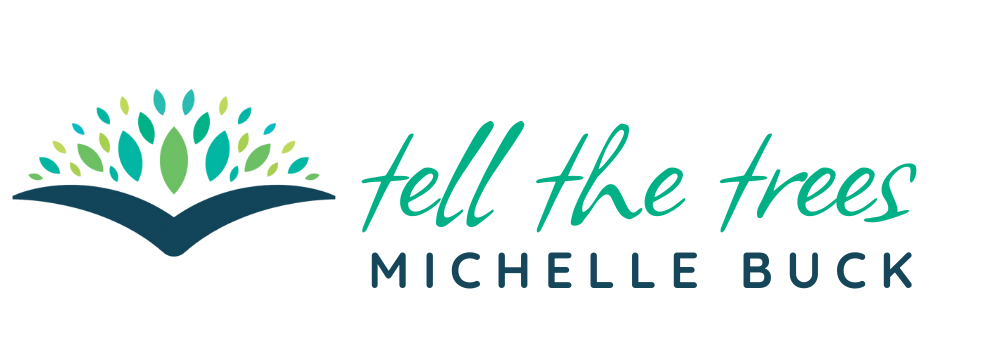by Michelle
Share
by Michelle
Share

After my post about the European Accessibility Act, I got some fantastic questions from you that made me realize we need to have a more practical conversation especially regarding digital products. My original post focused on what’s been published — either written by lawyers for lawyers or aimed at big publishers with compliance departments.
But what about the rest of us? The indie authors, template creators, course builders, and digital product sellers who are wondering: “Does this actually apply to me, and if so, what the heck do I do about it?”
Let’s dive into the real-world scenarios you’re asking about.
What about PDF Templates and Guides
Great question! And it perfectly illustrates why this whole thing is so confusing.
The Good News About Digital Products
Also, in my last article, I mentioned you can also use Draft2Digital even if you don’t plan on publishing through the platform.
If your book was published before June 28, 2025, and no major updates have been made, you’re in an even safer spot.
Like I mentioned previously, the microenterprise exemption can be a saving grace too. If you have fewer than 10 employees and less than €2 million annual turnover (that’s about $2.2 million USD) than you are exempt.
Honestly, that’s probably most creators!
The catch though is that even if you’re technically exempt, the platforms you sell on might still require compliance, so they stay protected. It’s kind of like GDPR which didn’t affect small creators, but still platforms wanted implementation. That might be true of the platforms you are using as well.
The Problem with Using a PDF in Your Digital Products
If you didn’t already know, PDF formats are not accessible. They don’t reflow text, can’t adjust easily for font sizing, and often don’t work well with screen readers. If someone with visual impairments buys your “Ultimate Business Plan Template” as a PDF, they might not be able to use it.
Bummer, right?
Before you panic though, ask yourself these questions.
- Are you actually selling to EU customers?
- Do you qualify for the microenterprise exemption?
- Is your platform (Gumroad, Stan, etc.) handling compliance?
- Are you marketing these as “books” or as “tools/templates”?
Let’s look at some possible scenarios and what you should actually do in each one.

Scenario 1: You’re an Indie Author on Major Platforms
What to do: Probably nothing as of right now. Keep publishing as usual as the platforms are going to carry the burden of making sure the books you publish are accessible.
For the future: If starting any new projects, consider learning about the accessibility formatting such as alt text for images and proper headings. It’s good practice to set these up correctly in the first place.
Scenario 2: You Sell PDF Templates or Guides (Digital Products)
If you’re under the microenterprise threshold: You’re most likely exempt, but consider offing your content in multiple formats. Maybe offer an EPUB version for reading plus the PDF as a workbook.
If you’re above the threshold: Time to think about accessibility. Consider partnering with someone who knows accessible design, or pivot to formats that are inherently more accessible.
Scenario 3: You Sell Directly to EU Customers
This gets trickier. If you’re actively marketing to EU customers through your own website, you might need to pay closer attention to compliance – especially for your website’s accessibility, not just your digital products.
Scenario 4: You’re Building Courses with Digital Materials
The content matters. If your course includes downloadable PDFs, workbooks, or other materials, accessibility becomes more important. But if it’s mostly video with transcripts, you’re in better shape. Consider offering EPUBs as an alternative to the PDF formats.
The Practical Take-Away for Digital Products
For starters, don’t panic if all this seems overwhelming. Most self-published authors are exempt or are protected already by their platforms.
If you are a growing business and could hit those microenterprise thresholds, start building accessibility into your business now. Think long-term because accessibility is spreading globally. What starts in the EU often becomes a rule with other markets soon enough.

If you aren’t sure what to do, why not make your content more user friendly? While it might seem like a challenge, it also puts your content in front of many more people because it isn’t limited in its use.
Accessibility is bigger than just EU compliance. It’s about reaching more readers, creating better user experiences, and building sustainable businesses that don’t exclude potential customers.
With that said, don’t let any of this deter you from creating and publishing. Most indie creators can keep doing what they’ve already been doing while staying informed of these changes.
Stay in the Know
In the future, I’ll be on the look out for these issues and report anything I find:
- Specific platform policies as they emerge
- How different EU countries interpret “ebook” vs. “digital product”
- The debate about the 5 year grace period (There’s a transitional period until June 28, 2030 for service providers to continue using products that were “lawfully used by them to provide similar services before” June 28, 2025. This is being debated worldwide.)
- Real enforcement examples as they happen
Let me know if you have any other questions and I’ll be sure to add it to my list of research topics. Thanks for all your responses so far.
Why waste time wrestling with formatting when you could be writing your next book?
As an author, your expertise is in creating valuable content that serves your readers. My expertise is in making sure that content reaches your audience in a format that’s professional, accessible, and actually works across all devices and platforms.
Check out my design services here.
This post was originally published on Substack at Tell the Trees.
Tell the Trees is supported by its readers. When you make a purchase using links on this site, it may result in affiliate commission. Please visit my affiliate disclosure page for more information.
Let's Discuss It
Accessibility isn’t just nice to have; in fact, it’s now more important than ever. In 2025, over 1.3 billion people worldwide live with some form of disability, and many use e-readers or screen readers to access digital content. Yet most self-published authors continue to create ebooks that unintentionally exclude these readers. Microsoft Word, a tool
One of the most often missed topics when it comes to writing and your office workspace is productivity. As a writer, you are focused on drafting, editing, book covers, ARC Reviews, and other important self-publishing topics, we forget that there are more efficient ways to do things. In your office or writing space, you might
The biggest threat for authors on Substack isn't competition or algorithm changes. It's something far more basic: the platform itself. Let's learn more.
As authors, we put our hearts on the page and then send our work out into the world, hoping it resonates with readers. But let’s be real—not everyone is going to love what we create, and some people are going to be downright nasty about it. If you’ve ever published a book, shared your writing








